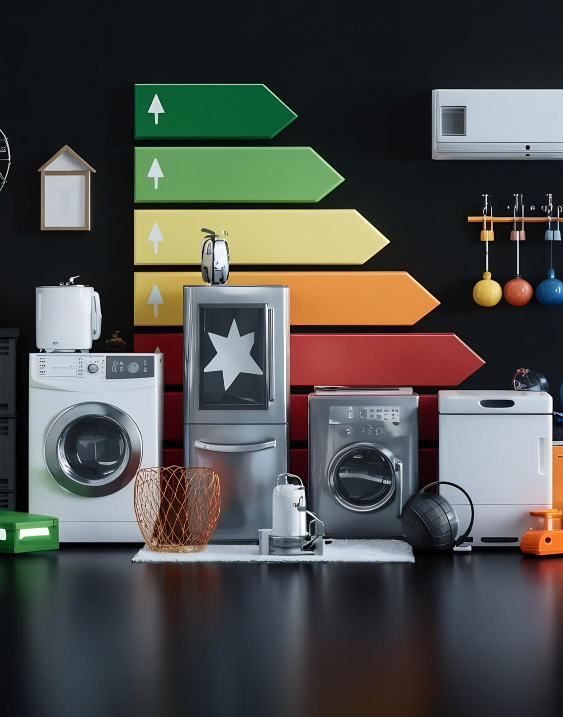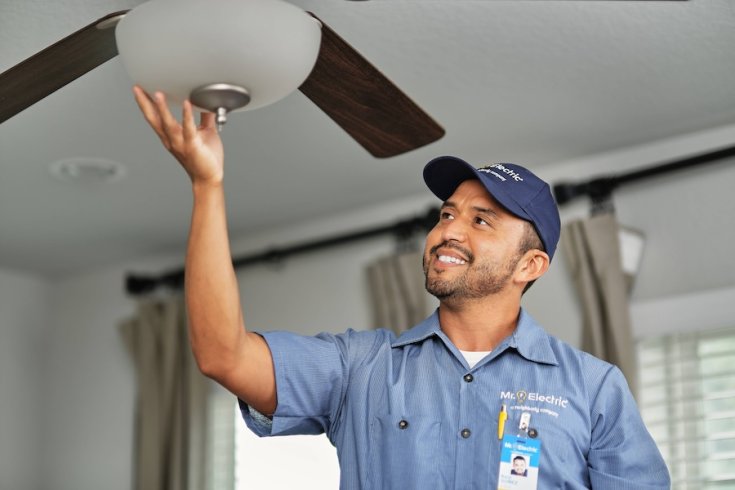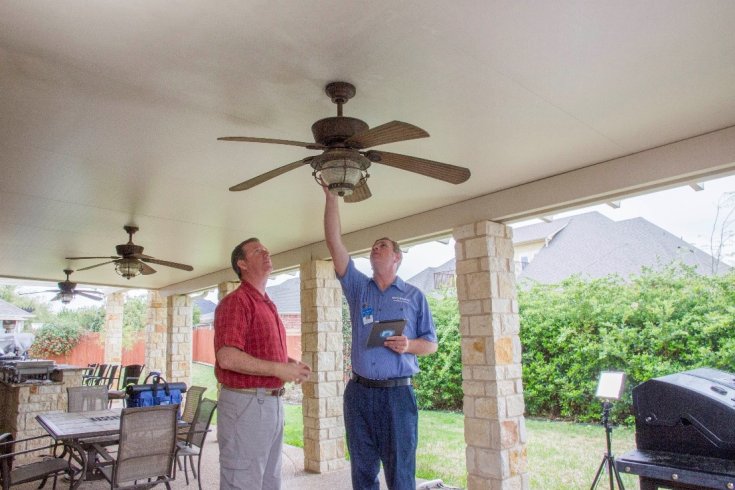Sep 15, 2024 What Appliances Use the Most Electricity?
Electricity powers our day, but have you ever wondered which appliances are really driving up your energy bill? From keeping our homes comfortable to cooking meals and staying connected, certain devices consume more power than you might expect. If you've been searching for ways to save on your electricity bill, understanding which appliances use the most electricity is a great place to start. At Mr. Electric, we know how important it is to keep your home running efficiently, and we're here to help you make sense of your energy usage. Whether you're looking for an electrician, need an electrical inspection, or require an electrical repair service in Bella Vista, knowing which appliances are the main energy hogs can help you take control of your power consumption.
The Appliances That Consume the Most Power
Not surprisingly, heating and cooling systems are often the biggest energy consumers in most homes. Air conditioners, especially older models, can use a lot of electricity, especially during the hot summer months. Electric heaters and heat pumps work overtime in the winter as well to keep your home warm, which drives up energy costs. Next on the list are water heaters. Heating water for showers, dishwashers, and laundry can account for a substantial amount of your energy bill. Appliances like refrigerators and freezers also rank high in energy consumption since they run continuously to keep your food fresh. Washing machines and dryers, particularly when used frequently, can also be contributors to high energy usage. Modern appliances may boast energy-saving features, but older models are often less efficient, making an electrical inspection a good idea to see if upgrades could save you money. The same goes for dishwashers, which, when run on higher heat settings, can consume a notable amount of power.
Understanding Vampire Appliances
Vampire appliances might sound spooky, but they're simply devices that continue to draw power even when they're turned off or not in active use. These sneaky energy consumers include electronics like televisions, gaming consoles, computer chargers, and even kitchen gadgets like microwaves and coffee makers. While each of these appliances might only use a small amount of electricity individually, together, they can add up to a noticeable drain on your energy usage. A common example of a vampire appliance is your phone charger. Leaving it plugged in without a phone attached still allows it to consume electricity. The same goes for devices with digital displays, standby lights, or any form of 'instant on' features. Many homeowners are surprised to learn that these devices can account for up to 10% of their electricity bill, which is why it's worth taking care of these silent energy stealers.
How to Stop Wasting Energy on Standby Appliances
Fortunately, reducing the impact of vampire appliances is simpler than you might think. The simplest solution is to unplug your devices when they're not in use. For appliances that are less convenient to unplug, like a television or computer setup, using a power strip can be an effective alternative. Power strips allow you to cut power to multiple devices with a single switch, making it easy to ensure that all connected appliances are truly off when not needed. Smart plugs and timers are another great way to manage vampire appliances. These devices allow you to control when power is supplied to your appliances, either through scheduling or remote control via smartphone apps. This can be useful for items like lamps, chargers, or entertainment systems that don't need to be on standby all the time. Scheduling regular electrical inspections can also help identify areas where energy efficiency can be improved. An experienced electrician can offer advice on updating your home's wiring or replacing outdated outlets and fixtures that might be contributing to unnecessary energy usage.
Ways to Reduce Your Overall Energy Consumption
Beyond targeting specific appliances, there are broader strategies you can implement to reduce your overall electricity consumption. Start by upgrading to energy-efficient appliances. Look for models that carry the Energy Star label, which shows that they meet strict energy efficiency guidelines. Routine maintenance of your home's heating, cooling, and water heating systems can also play an important role in energy conservation. For example, regularly replacing air filters and scheduling professional inspections can ensure that these systems are operating efficiently. It's also important to be mindful of how you use appliances. Running full loads with dishwashers and laundry machines, opting for cold water washes, and using eco-settings whenever available can all make a difference.
Take Charge of Your Energy Use with Mr. Electric
If you're ready to get serious about saving energy, consider scheduling an inspection with Mr. Electric. Our experienced electricians can help you find the best solutions for your home, from upgrading to energy-efficient appliances to tackling electrical repairs that can improve your system's performance. Contact us today to learn more about how we can help you save energy with a system upgrade or electrical repair service.


.webp)
.webp)

.webp)
